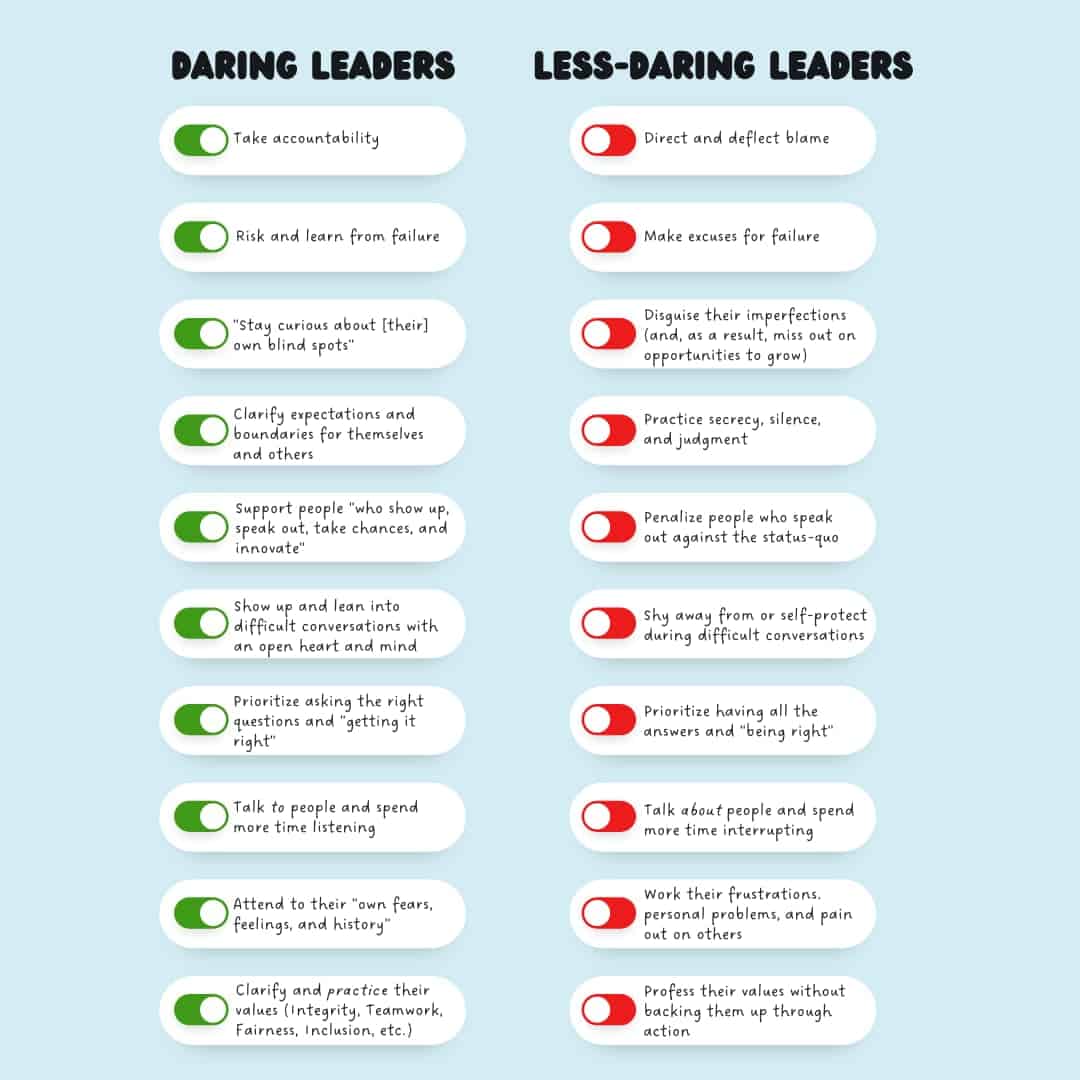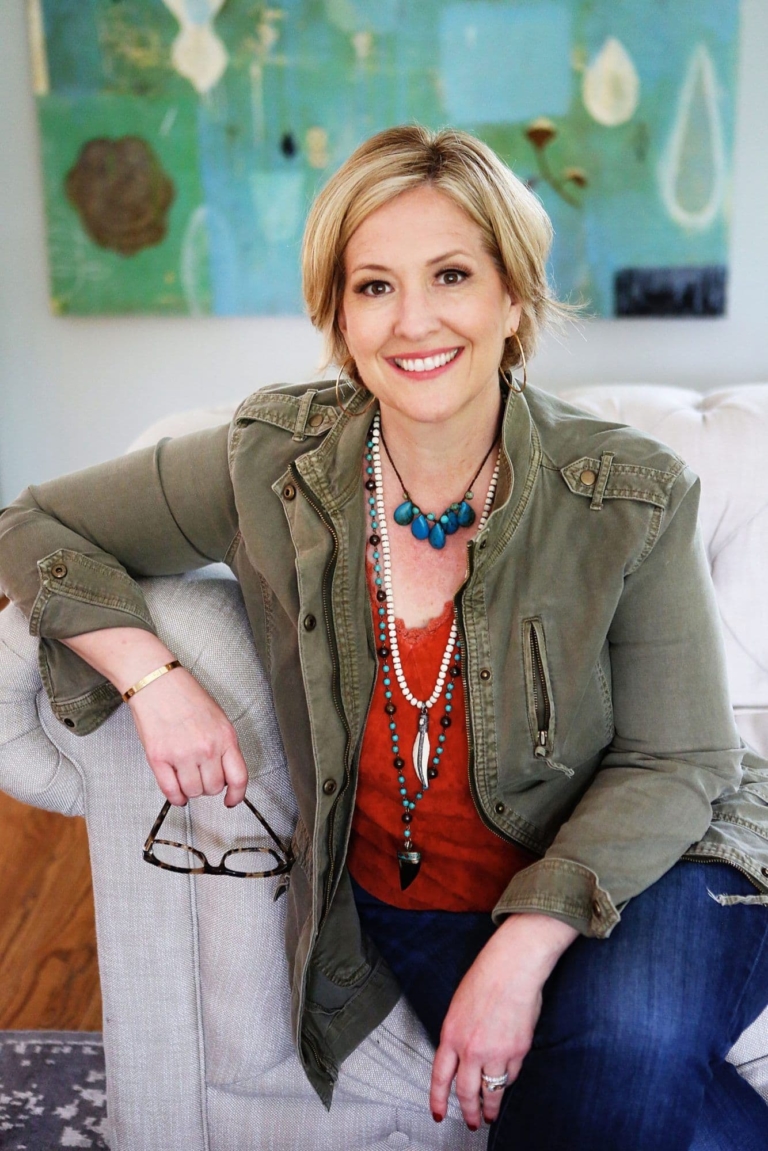Summary
Dr. Brené Brown is a research professor at the University of Houston who studies vulnerability, courage, empathy, and shame. Her data sets encompass the stories of thousands of people, and her work uncovers “the truth about the emotional blind spots that hold us back both personally and professionally.”
As a speaker and author, Brown tackles tough topics “with wisdom, wit, candor and a deep sense of humanity.” She is the host of two weekly podcasts, the first researcher with a Netflix Special, and the author of six #1 New York Times best sellers. Her latest book, Atlas of the Heart, is covered in a five-part series on HBO Max.
Today, most of Brené’s time is dedicated to cultivating “braver leaders and more-courageous cultures” in organizations around the world. She also holds the Huffington Foundation Endowed Chair at the University of Houston Graduate College of Social Work, where she earned both her Master of and Ph.D. in Social Work. Furthermore, she is a visiting professor in management at the University of Texas at Austin McCombs School of Business, where she earned her Bachelor of Social Work.
Specialty Areas
Writing
Highlighted Books
Brown self-published her first book in 2004. Since then, she has grown into a #1 New York Times bestselling author, as well as a household name. As stated by Sir Ken Robinson, she “writes as she speaks – with wisdom, wit, candor and a deep sense of humanity.” We feature some of her most popular titles below.
Daring Greatly
Rising Strong
Dare to Lead
The Gifts of Imperfection: 10th Anniversary Edition
Atlas of the Heart
Highlighted Articles
Over the years, Brown has cultivated a diverse collection of written work (available on brenebrown.com). This collection includes book adaptations, book recommendations, announcements, reflections, and gratitude. Popular topics include courage, leadership, social justice, belonging, and spirituality, which Brown defines as “a deeply held belief that we are inextricably connected to one another by something bigger than us, and something that is grounded in love.” Sample articles include:
Speaking
TED(x) Talks
Podcasts
Brown is the host of two Spotify original podcasts: Unlocking Us and Dare to Lead.
Netflix Special
Resources
Assessments/Quizzes
PERSPECTIVES
Daring Greatly
Vulnerability is sometimes perceived as weakness, or something to be ashamed of. In Brown’s eyes, however, vulnerability is not weakness. Rather, vulnerability “is having the courage to show up when you can’t control the outcome.” It is key to meaningful human experiences, and it is at the center of daring greatly.
A note about the origin of “daring greatly”:
The phrase “daring greatly” can be traced back to “Citizenship in a Republic,” a speech given by Theodore Roosevelt in 1910. In this speech, he says:
“It is not the critic who counts, not the one who points out how the strong man stumbled or how the doer of deeds might have done them better. The credit belongs to the man who is actually in the arena, whose face is marred with sweat and dust and blood; who strives valiantly; who errs and comes short again and again; who knows the great enthusiasms, the great devotions, and spends himself in a worthy cause; who, if he wins, knows the triumph of high achievement; and who, if he fails, at least fails while daring greatly….”
In Brown’s take on this idea, daring greatly begins with a choice, and that choice is up to you. Your options? Comfort or courage.
When you choose comfort, you choose to live outside the arena. You run from vulnerability, and inevitably, vulnerability catches up. When this happens, you likely feel exposed and uncomfortable, so you (knowingly or unknowingly) numb the difficult emotions that vulnerability brings to the surface. The problem with this approach? As humans, we don’t have the power to numb our emotions on a selective basis. In other words, when you numb your capacity to feel one emotion, you numb your capacity to feel at all. Because of this, Brown proposes an alternative approach to vulnerability – an approach that starts with choosing “courage over comfort.”
When you choose courage, you choose to live in the arena. You embrace and engage with vulnerability, and you find comfort in the discomfort by leaning into difficult conversations, listening, and learning. You “love with [your] whole heart,” despite the fact that doing so means you’re also risking heartbreak. You’re willing to take chances and make mistakes, because your sense of worthiness does not depend on being perfect. Rather, it depends on your sheer belief that, in spite of (and because of) your imperfections, you are worthy of love, connection, and true belonging. In Brown’s perspective, this is daring greatly.
For more on this idea and Brown’s perspectives, see her first book on courage and vulnerability, Daring Greatly. Her second TED Talk, “Listening To Shame,” also addresses these important topics.
Daring Leadership
Brown has studied the future of leadership for more than ten years, and according to her research, there is an industry-wide call for a different form of leadership: daring leadership. From Pixar to IBM, people want “braver leaders and more courageous cultures.” So, she’s answering the call.
To foster a generation of more daring leaders, Brown codifies brave leadership into four teachable, observable skills: “Rumbling with Vulnerability, Living into our Values, Braving Trust, and Learning to Rise.” For a better understanding of what these skills look like in practice, review the traits and behaviors of daring (and less daring) leaders below.

Source: Brené Brown’s Daring to Lead
Meaningful Connection
As human beings, we are neurobiologically hard-wired for connection, which Brown defines as “the energy that exists between people when they feel seen, heard, and valued; when they can give and receive without judgment; and when they derive sustenance and strength from the relationship.” As a result, connection holds significant power in our lives. To better understand this power, consider life with and without connection.
When we feel connected, our lives have purpose and meaning. We feel a sense of true belonging, and we can “be present with people without sacrificing who we are.” When we feel disconnected, however, our lives are dictated by shame and fear. We feel unworthy of true belonging, and we suffer in silence. To break free from this silence and (re)connect with ourselves and others in more meaningful ways, Brown recommends broadening our emotional vocabularies, reflecting on why people disconnect in the first place, and strengthening internal connection before focusing on external connection.
Broadening your emotional vocabulary is the first step toward more meaningful connection, because our ability to connect over what we’re feeling relies on our ability to express what we’re feeling. For a better understanding of the vastness that is human emotion, consider starting with Brown’s latest book, Atlas of the Heart. In this map to more meaningful connection, she provides a common understanding of 87 human emotions in order to help you express yourself, as well as understand the experiences of others.
To connect with yourself and others in more meaningful ways, it is also important to understand what’s behind the human tendency to disconnect. The answer? Fear. Whether it’s the fear of vulnerability, the fear of failure, or the fear of not being enough, fear is “the one core variable that magnifies our compulsion to sort ourselves into factions while at the same time cutting ourselves off from real connection with other people.” Thus, the secret to more meaningful connection lies in overcoming the fears that hold us back.
While fear thwarts us from connecting in more meaningful ways, vulnerability does the opposite. Essentially, meaningful connection with others cannot happen until we are seen, and we cannot be seen until we have the courage to be vulnerable. According to Brown, finding this courage starts with internal connection. As she describes, internal connection is like an anchor that reminds us of who we are, and it strengthens our belief that we’re worthy of love and belonging. As we learn to love ourselves for who we are (imperfections and all), we realize and eventually believe that these imperfections make us human, thereby connecting us to all of humanity. Ultimately, this belief and the sense of worthiness that it creates allow us to put ourselves out there, in places where external connection can blossom.
Sources
- https://brenebrown.com/about/
- https://brenebrown.com/media-kit/
- https://www.linkedin.com/in/brenebrown/
- https://www.ted.com/speakers/brene_brown
- https://brenebrown.com/the-research/
- https://brenebrown.com/collections/getting-started-with-brene/
- https://brenebrown.com/books-audio
- https://brenebrown.com/articles/2018/10/23/a-note-of-thanks-a-commitment/
- https://www.theceomagazine.com/business/health-wellbeing/brene-brown/
- https://brenebrown.com/resources/rising-strong-truth-and-dare-an-introduction/
- https://brenebrown.com/articles
- https://brenebrown.com/articles/2018/03/27/defining-spirituality/
- https://brenebrown.com/articles/2019/04/26/book-read-first/
- https://brenebrown.com/articles/2015/07/27/the-most-dangerous-stories-we-make-up/
- https://brenebrown.com/articles/2019/05/01/lets-rumble/
- https://brenebrown.com/articles/2018/03/13/courage-comfort-rumbling-shame-accountability-failure-work/
- https://www.ted.com/talks/brene_brown_the_power_of_vulnerability
- https://www.ted.com/talks/brene_brown_listening_to_shame
- https://brenebrown.com/podcasts/
- https://brenebrown.com/podcast-show/unlocking-us/
- https://brenebrown.com/podcast-show/dare-to-lead/
- https://brenebrown.com/podcast/new-dare-to-lead-with-brene-brown-trailer/
- Brené Brown: The Call to Courage. Directed by Sandra Restrepo, 2019, Netflix Original Production. Netflix, https://www.netflix.com/title/81010166.
- https://daretolead.brenebrown.com/assessment/
- https://www.worldatlas.com/articles/man-in-the-arena.html
- https://www.refinery29.com/en-us/2019/04/228971/brene-brown-the-call-to-courage-netflix-interview
- https://brenebrown.com/hubs/dare-to-lead/
- https://brenebrown.com/resources/dare-to-lead-list-of-values/
- https://brenebrown.com/resources/the-braving-inventory/
- https://www.theceomagazine.com/lifestyle/interview/brene-brown/
- https://time.com/5441422/expert-feelings-brene-brown-leadership/
- https://www.washingtonpost.com/entertainment/books/brene-brown-knows-what-makes-a-great-leader--and-most-politicians-wouldnt-make-the-cut/2018/10/15/876433ac-c7fa-11e8-b1ed-1d2d65b86d0c_story.html?noredirect=on
- https://www.inc.com/magazine/201810/maria-aspan/brene-brown-leadership-consultant-research.html?cid=hmhero
- https://www.forbes.com/sites/danschawbel/2017/09/12/brene-brown-why-human-connection-will-bring-us-closer-together/?sh=12c04ee92f06
- https://time.com/4029029/10-questions-with-brene-brown/
- https://brenebrown.com/articles/2018/10/15/clear-is-kind-unclear-is-unkind/
- https://brenebrown.com/articles/2018/12/04/leading-from-hurt-versus-leading-from-heart/
- https://www.theguardian.com/books/2015/nov/22/brene-brown-vulnerable-dont-suggest-she-is-peddling-self-help
- Approved PR and press materials, available on Brené Brown's website
